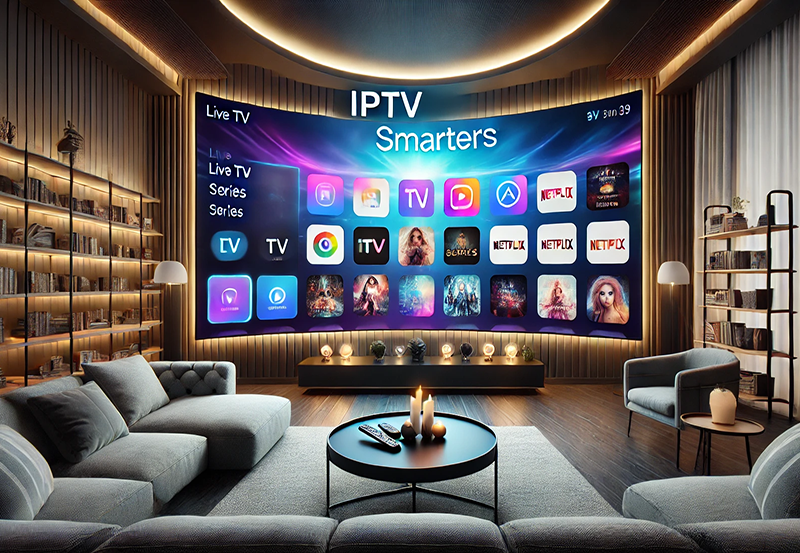The world of television entertainment is evolving rapidly, with digital streaming at the forefront. For tech enthusiasts and businesses alike, Open Source IPTV solutions represent an intriguing opportunity, especially within the Linux ecosystem. This article explores the depths of IPTV solutions designed for Linux, focusing on the functionality, advantages, and challenges associated with these platforms.
Understanding IPTV: A Brief Overview
The term IPTV stands for Internet Protocol Television, a technological leap from traditional TV services. Rather than relying on satellite or cable formats, IPTV transmits television content over a packet-switched network like the internet. This innovation allows for diverse content delivery methods, including live broadcasts, video on demand, and time-shifted media.
Linux users find themselves in a unique position to leverage IPTV’s capabilities due to the flexibility and open-source nature of their preferred operating system. But why is this compatibility so significant?
Expert Insight:
Watch your favorite sports channels seamlessly with Top IPTV subscriptions for unparalleled streaming quality.
The Linux Advantage in IPTV Solutions
Linux is renowned for its stability, security, and customizability. These attributes make it an excellent platform for IPTV solutions that require robust infrastructure for streaming operations. From performance optimization to open-source customization, Linux provides endless possibilities, reducing costs and enhancing control over streaming experiences.
Moreover, Linux supports a wide array of open-source projects, fostering a community of developers eager to push IPTV technology forward. This collaborative environment leads to continuous improvements and innovative features that benefit users and developers alike.
Aligning IPTV and Open Source: A Perfect Match?
IPTV and open-source philosophies align harmoniously, promoting transparency, collaboration, and free usage. With independent developers and companies contributing to these projects, a vast pool of creative solutions is available for Linux users. This synergy drives the development of powerful tools, apps, and services, enhancing IPTV’s accessibility and functionality.
Yet, does this openness equate to a straightforward experience? The reality is nuanced, and the subsequent sections aim to dissect the specific benefits and challenges.
Exploring Popular Open Source IPTV Solutions for Linux
Several open-source IPTV solutions stand out for Linux users. Let’s take a closer look at a few notable ones that provide comprehensive features for varied streaming experiences.
Kodi: More than Just a Media Player
Kodi has emerged as a leading name in the domain of multimedia software applications. Known for its user-friendly interface and extensive support, Kodi functions as a powerful IPTV platform through add-ons that facilitate streaming from a plethora of channels.
Why choose Kodi? Here are some compelling reasons:
- Customizable interface and themes
- Vast library of add-ons for IPTV and other multimedia
- Cross-platform compatibility, enhancing its versatility
Tvheadend: A Scalable Server Solution
Tvheadend is another open-source option tailored for delivering television and radio streaming services. Known for its back-end server capabilities, Tvheadend enables administering IPTV channels with relative ease, proving beneficial for both individual users and businesses.
Key features of Tvheadend include:
- Support for live TV, streaming, and recording
- Comprehensive web-based user interface for configuration
- Integration with other media players and applications
How Tvheadend Enhances Business Opportunities
Businesses often seek reliable and scalable solutions for IPTV management. Tvheadend delivers with its ability to handle large-scale deployments efficiently. Its architecture allows adaptation to diverse broadcasting needs, making it a preferred choice among IPTV service providers.
Moreover, companies can take advantage of its multi-user support, seamless integration, and minimal hardware requirements to reduce operational costs.
IPTV Service Provider Comparison: Deciphering the Choices
When selecting an IPTV service, understanding the landscape is crucial. Let’s compare the leading IPTV providers to see how they stack up regarding features, pricing, and support.
Key Metrics to Assess IPTV Service Providers
Choosing the right IPTV provider depends on various factors that align with user or business requirements. These include:
- Content variety and exclusivity
- Quality of streaming and resolution options
- Pricing structures and flexibility
- Technical support and customer service quality
Leading IPTV Providers and Their Merits
Here’s a brief overview of some frontrunners in the IPTV service domain:
**Provider A** is known for its expansive content library, covering everything from live sports to international TV shows. Customers often praise its HD streaming capability and responsive customer service.
**Provider B**, meanwhile, appeals with its competitive pricing and user-friendly interface, ideal for first-time IPTV users who prioritize ease of navigation.
What to Expect from Future IPTV Services
As technology evolves, IPTV services are likely to see enhancements, such as AI-driven content recommendations, augmented reality integration, and 5G-enabled seamless streaming. Staying informed of these trends will help users and businesses adapt strategies accordingly.
Overcoming Challenges in Implementing IPTV on Linux
While the integration of IPTV on Linux offers notable advantages, some challenges demand attention. Thankfully, solutions and workarounds exist to address these issues effectively.
Technical Hurdles and Their Solutions
Configuration difficulties, software compatibility, and performance hiccups represent common hurdles in IPTV integration on Linux systems. Addressing these obstacles requires a combination of community support, thorough research, and patience.
Moreover, leveraging forums and user groups can offer insights into potential tweaks and tools that simplify the IPTV setup process.
Security Concerns and Mitigation Strategies
Security is a pivotal concern, especially when streaming over the internet. Ensuring a secure system involves choosing reputable software, setting up a reliable firewall, and being cautious of dubious add-ons that might compromise data integrity.
Proactively managing system and server updates prevents vulnerabilities from being exploited, thereby safeguarding sensitive user data from malicious attacks.
The Role of Community in Navigating Challenges
An engaged community forms the backbone of Linux and open-source software success. By tapping into collective wisdom, users can overcome challenges more efficiently. Whether troubleshooting or sharing success stories, community interaction plays a crucial role in navigating the complexities of IPTV integration.
Streamlining Your TV Experience: The Future of IPTV on Linux
The future of IPTV on Linux appears promising, with ample opportunities for growth and innovation. As the streaming landscape evolves, Linux offers a dynamic environment for adapting to the diverse demands of present-day broadcasters and viewers.
Engaging with IPTV solutions on Linux encourages a more personalized and efficient television experience that aligns with modern viewing habits and technological advancements.
Trends Shaping IPTV’s Future on Linux
Several trends are shaping IPTV’s trajectory, including:
- Integration of AI and machine learning for content personalization
- Enhancements in connectivity and internet speed via 5G networks
- Expanding community-driven innovations and features
Users and developers must stay attuned to these trends, responding strategically to maximize IPTV’s benefits within the Linux ecosystem.
Leveraging Open Source for Maximized Impact
The open-source nature of Linux fosters innovation, encouraging contributions that rapidly advance IPTV technology. Users can customize applications to suit their specific needs, ensuring a tailored streaming experience that traditional platforms may not offer.
This ability to adapt and modify stands as a cornerstone of Linux’s continued relevance in the IPTV arena, providing both challenges and exciting possibilities for the future.
Community and Collaboration: Keys to Continued Progress
Ultimately, the journey of IPTV solutions on Linux thrives on community collaboration. From collective problem-solving to creative experimentation, shared knowledge empowers users to achieve new milestones while adapting to ever-shifting tech landscapes.
By fostering an environment of openness and cooperation, Linux and open-source IPTV projects are poised for significant advancements in the coming years.
FAQ About Open Source IPTV Solutions for Linux

What is IPTV, and how does it work on Linux?
IPTV, or Internet Protocol Television, delivers TV content via internet protocols instead of traditional cable or satellite. On Linux, IPTV utilizes open-source software like Kodi or Tvheadend to manage and distribute this content efficiently.
Why choose open-source IPTV solutions over commercial options?
Open-source IPTV solutions offer customization, cost-effectiveness, and community support. They allow users to adapt the software to personal needs and benefit from continuous updates from global developer communities.
Can I rely on Linux for IPTV streaming?
Absolutely. Linux provides a stable, secure, and flexible platform for IPTV streaming, with a wide range of compatible applications and strong community support to assist with potential issues.
Which is better: Kodi or Tvheadend for IPTV on Linux?
It depends on your needs. Kodi is user-friendly and ideal for those seeking a comprehensive media experience with diverse add-ons. Tvheadend excels as a server-based solution, suitable for large-scale deployments and advanced configuration.
How can I ensure a secure IPTV setup on Linux?
For a secure IPTV setup, use trustworthy software and regularly update your system. Implement strong firewalls, be cautious with add-ons, and actively participate in the Linux community to stay informed about security practices.
What challenges might I face using IPTV on Linux?
Challenges include software compatibility, configuration complexities, and security concerns. However, leveraging community support and online resources can help effectively address these issues.
Are there future trends to watch in Linux-based IPTV?
Yes, upcoming trends include AI-enhanced personalization, integration with ultra-fast 5G networks, and continuous community-led innovations. These developments are expected to refine and expand IPTV’s capabilities on Linux.
Safety and Privacy on Android Boxes: A Beginner’s Guide





